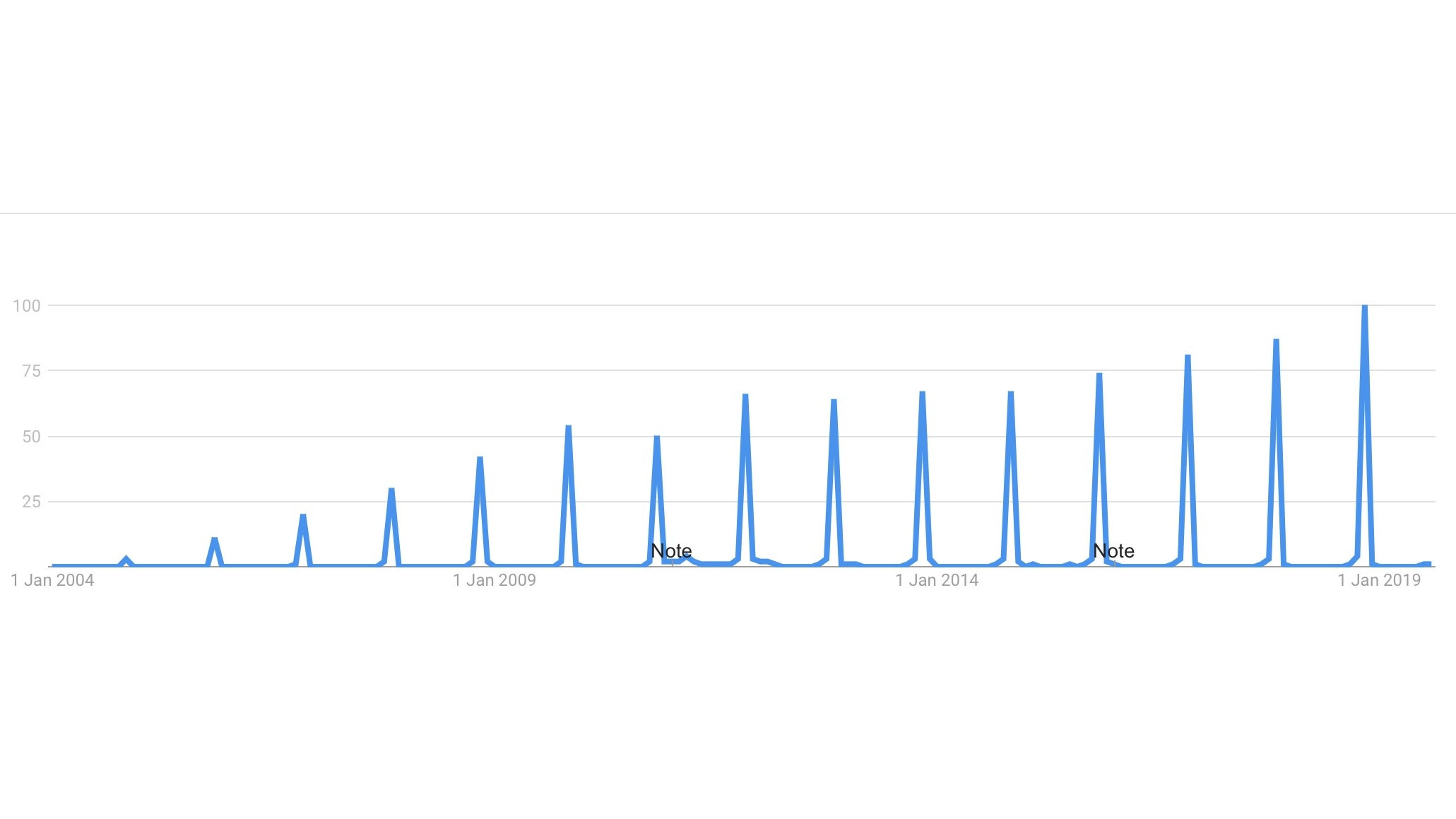How has Black Friday changed over the last decade?
It's a whole lot bigger now for one

Cast your mind back to 2009. It's almost like stepping back into a different geological era. The iPhone was barely two years old, and a smartphone was a glamorous accessory, not the device around which your entire life revolves.
Sat underneath our TVs we had PlayStation 3s and Xbox 360s. And if you wanted to watch some Netflix? That might have required a trip to the post office.
But despite all of the change, we still have our sacred traditions. No, we're not talking about Christmas or Thanksgiving. We're talking about Black Friday, the day after Thanksgiving when retailers all over the United States, and increasingly the world, will drop their prices in a pre-Christmas shopping bonanza.
But just like the Pope had to learn to rap to stay relevant with the kidz, Black Friday has had to keep up with the times too. So how has it changed in the last decade?
First and foremost, Black Friday is simply a much bigger deal. A glance at Google Trends data reveals that searches for the day have steadily increased consistently since Google began tracking, as you can see in the chart below.

"Experience and research carried out academically, demonstrates that almost without exception, people love the sense of getting a bargain. If you want something but believe it will be reduced in price when there is a sales day you will probably wait", says Dr Steve McCabe from the Institute of Design and Economic Development at Birmingham City University.
This can be seen by individual retailers too. Prezzybox, an online store that sells, well, prezzies, has observed how the change impacting what they do.
Sign up for breaking news, reviews, opinion, top tech deals, and more.
"November as a trading period is a lot quieter", says Managing Director Zak Edwards, noting that last year November sales were down 18.58% - what with the big day and sister holiday Cyber Monday taking place at the end of the month, and customers waiting for the deals to arrive.
By contrast, the companies December sales were up by 13%. This change in behavior actually creates a little of a headache for the company, as the more concentrated burst of shopping means that their stock replenishment and courier network is put under a lot more strain.
What we buy
"There has been a huge shift in shopping habits over the last decade and the rise in online retailers exceeds the expectations of early predictions for what categories of items people were prepared to buy online", says Professor Lawrence Bellamy from the University of Sunderland.
He explains that Black Friday shoppers today are much more willing to buy products online and return them if what he calls the "online intangibles" are not right.
In other words, a decade ago, online shopping was mostly confined to things where shoppers could have confidence in what the product actually looks like - stuff like books - and physical retail was where people wanted to buy clothes and other goods where we can’t tell from a screen whether it is right for us.
In part, this is driven by changes in technology, with improvements in 'reverse logistics', but it is also cultural: Millennials and 'Generation Z' are more willing to take these sorts of risks online than their parents.
This can even be seen in the numbers: In the UK, a staggering 87% of retail purchases now take place online according to a Royal Mail report from 2018, with 48% coming from a mobile device.

Black month
One other curious aspect of the rise of online shopping is that it is changing when Black Friday itself takes place. We’re all used to seeing CCTV footage of scrums in shopping malls as bargain hunters physically fight over goods, but Black Friday is becoming less a specific day and more of a season.
"Retailers in future could instead use the term 'Black Friday' as a buzzword to draw attention to discounts across the entire month of November to kickstart crucial Christmas sales", says Gavin Lowther from digital marketing agency Visualsoft.
John Gillan, MD of Criteo, a marketing company that works with a number of retailers, notes that in 2018 Amazon even cashed in on the Black Friday frenzy early, by launching a series of special "Countdown to Black Friday" deals from the beginning of November.
"But Black Friday remains a key date in the retail diary," he says, "our research found that those people who were shopping on the day itself spent much more than in previous years - with the average basket totaling £132" (around $160/AU$240).
Tough competition
And finally, the other way Black Friday has changed? As cynically hyped marketing holidays go, Black Friday is practically an ancient tradition, and can be traced back 90 years. But consumers are not sentimental about this - and over the last decade we’ve seen the rise of competing shopping days.

Most obviously, in the west there is Amazon's Prime Day, which usually takes place in mid-July. This is functionally identical to Black Friday, but is concentrated around one retailer. At least, for the time being, as other retails are starting to jump on the bandwagon by having Prime Day sales of their own despite having nothing to do with Amazon.
To see the really serious competitor, however, we need to look to China, where its equivalent of Amazon, shopping behemoth Alibaba, hosts an annual sale on 'Singles’ Day', which takes place on 11/11 (because the number one is single, geddit?).
"In 2018, Black Friday sales topped $6.2bn, while Singles' Day generated $30.8 billion for Alibaba in under 24 hours.
"There is no way international brands will continue to turn a blind eye to this occasion, especially as growth in the Chinese economy may be slowing slightly, but is still projected at a very healthy 6% this year," explains Jimmy Robinson from Ping Pong Digital, a company that focuses on social media marketing for overseas companies in China.
"I think it highly likely we will see more retail brands and companies from a range of sectors looking to engage with Chinese customers for Singles' Day and its little brother Double 12 day (December 12), and these dates will become shopping occasions beyond China’s borders, similar to how Black Friday spilled over from the USA through online sales."
So, could Black Friday eventually become a shadow of its former self?
"Ultimately, all retailers, online or located on the high street, will continue to use whatever means they can to increase their sales," says McCabe, "If this means shoppers believe they are purchasing items cheaper than would otherwise be the case they will remain satisfied that the system works in their favor."